Election of President-Elect, Regional Directors-at-Large and Members-at-Large

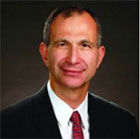
Ahmed Tewfik
SPS Past President and Chair, 2022-2023 Nominations and Appointments Committee
It is my pleasure to announce that the IEEE Signal Processing Society (SPS) annual election will commence on 15 August, and your vote is more important than ever! This year, all eligible SPS Members will vote for the next President-Elect (term 1 January 2024 through 31 December 2025), in addition to the Regional Directors-at-Large for Regions 7 & 9 and 10 (term 1 January 2024 through 31 December 2025), and Members-at-Large (term 1 January 2024 through 31 December 2026) of the IEEE Signal Processing Society Board of Governors (BoG).
Ballots will be mailed to SPS members. The ballot includes a diverse slate of candidates for all elections, which were vetted by the SPS Nominations and Appointments Committee, as well as a space for write-in candidates. This year’s election offers SPS members the opportunity to cast their votes via the web at https://eballot4.votenet.com/IEEE for up to one President-Elect, one Regional Director-at-Large for your corresponding Region: Regions 7 & 9 (Canada and Latin America) and Region 10 (Asia and Pacific), and three Member-at-Large candidates. Ballots must be received at the IEEE no later than 2 October 2023 to be counted. Members must meet the eligibility requirements at the time the ballot data is generated to be eligible to vote. To be eligible to vote in this year’s Society election, you had to have been an active SPS Member, Affiliate, or Graduate Student Member as of 30 June 2023. This is the date when the list of eligible Society voting members was compiled.
The 2023 candidates for President-Elect (presented in alphabetical order), and their candidate statements, appear below:
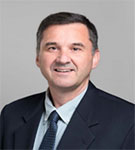
Konstantinos (Kostas) N. Plataniotis
The IEEE Signal Processing Society has been my professional home since 1991, and I have always cherished the opportunity to continue serving our community. The nomination for the post of SPS President-Elect humbles me. Within the term of office, I envision addressing the following priorities:
Serving our members: As we celebrate our 75th anniversary and look to the future, we can confidently say that our society's membership will look different and much more diverse than today's. Members in different geographical regions, industries, and career stages will have different needs and priorities. We will develop personalized activities and services around individual members' needs to the extent possible. For example, SPS will support activities that combine networking and mentoring programs with customized education and help build project-focused communities quickly for specific purposes. We will use enabling technologies, including webinars and virtual meetings, to establish and promote public forums, possibly free-of-charge ecosystems, to exchange ideas, data, and research artifacts, engage practicing engineers, and collaborate with industry leaders. We will intensify our investment and collaborate with IEEE and sister societies in offering services and solutions that address the educational and capacity-building needs of our current and future members by delivering microlearning opportunities and “stackable” credentials in emerging interdisciplinary areas. With new technologies making the interaction among our members more convenient, we will continue expanding our networking and mentoring programs to more underserved areas and underrepresented groups in our community. Diversity and inclusion are our moral and ethical responsibility and necessary conditions for sustainable, long-range growth.
Support to volunteers: SPS’ governance structure ensures our goals and objectives are met. It should be future-focused and agile. We will expand our footprint and create new programs in emerging interdisciplinary areas such as data science, artificial intelligence, and machine learning. Moreover, as the submitted material is projected to increase, we will, in consultation with IEEE, experiment with partially automated initial vetting of submitted material while maintaining overall quality control at subsequent levels. Keeping our volunteers engaged and their workload reasonable while maintaining our reputation as a trusted knowledge source is feasible and doable.
Securing the future: SPS finances our community’s operations, offerings, and services to its members. Continuing to operate in a self-sustainable way is paramount for the long-term viability of our professional home. Dealing with the financial shortfall from the open-access initiative, accounting for the regional, membership-segment conference participation fee adjustments, financing new member services, and supporting membership-drive incentives impact SPS’ fiscal profile. Still, some of our members’ conference fees are high, and open-access publishing fees are unreasonably excessive given their circumstances, i.e., for those who transition between careers or are in a low-income region. That said, SPS’s funding models do not need to be limited to membership subscriptions and conference and publication fees. In consultation with IEEE, we will explore income streams from sponsored activities, including support from corporate sponsors for conferences, public forums and special group activities, education and skills capacity offerings, monetization of applications related to “information summarization,” and “executable knowledge.”
For more information about Konstantinos (Kostas) N. Plataniotis, please visit his webpage.
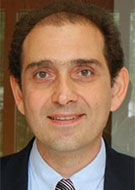
Nicholas Sidiropoulos
I have served SPS in leadership roles for many years. Among the various efforts I have undertaken, I’m particularly pleased with the following.
1.) My service as chair of the Signal Processing for Communications and Networking Technical Committee (SPCOM TC). I helped institute a rigorous paper award screening and multi-stage selection process that remains in use 17 years later. Every paper published in TSP which falls under the scope of the TC is “scan-reviewed” by a TC member, thus given a chance to be considered for award nomination. I received the SPS Meritorious Service Award for my TC service and leadership.
2.) In 2016-2017, I chaired a committee tasked with developing an SPS-related repository under arXiv. We established arXiv/eess (Electrical Engineering and Systems Science), the first engineering repository under arXiv, which now attracts many thousands of preprints/year. This has enhanced the visibility and footprint of SPS.
3.) While serving as SPS Vice President for Membership, I led a charge to reduce SPS membership fees for members in developing countries, and another to ensure proper representation of the different technical constituencies within SPS on the awards board, the nominations & appointments committee, and the SPS Fellows committee. Fairness, transparency, equity and inclusion have always been important to me.
In recent years, many of us have turned our attention to machine learning, and this has created a strong current within SPS. Non-IEEE/SPS venues are growing in job market value. Our answer should be multi-pronged, but a key point should be to renew our vows to offering quality reviews and insightful and authoritative editorial decisions, in a timely fashion. I was pleased to see ICASSP submission and reviewing move to the Microsoft CMT platform which hosts the major AI/ML conferences, and the presence of big AI/ML industry players at ICASSP 2023. We should up the ante and turn ICASSP into a major AI/ML recruiting event for our students.
Open access has been something that we have been struggling with for years now. While we have taken steps to mitigate its short-term impact, we have failed to embrace it. We should offer open access for our flagship transactions and conferences at a reasonable ($1000) open access fee, further reduced for members in developing economies. We can compensate the revenue loss through targeted IEEE Xplore advertisement and the increased visibility / hits / citations / impact that come from open access.
Promoting diversity and fostering inclusive excellence and respect for individual differences should be high on our agenda. We have made progress, but much remains to be done. There are underserved parts of the world that are a significant source of underrepresented SPS talent, and we should focus more on those communities to recruit, mentor, and elevate future SPS leaders. Another grand challenge we must reckon with is the rapidly emerging transition to a more divided, multi-polar world. As an international scientific society, we should stand united to foster pathways for scientific exchange and better understanding of each other.
I will be honored to serve SPS if elected.
For more information about Nicholas Sidiropoulos, please visit his webpage.
The 2023 candidates for Regional Director-at-Large (presented in alphabetical order) appear below. Candidate biographies will be included in the ballot.
Regions 7 & 9:
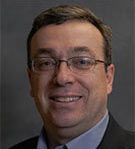
Timothy N. Davidson |
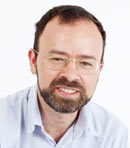
Vítor Heloiz Nascimento |
Region 10:

Chiou-Ting Hsu |
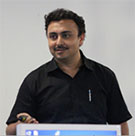
Chirag N. Paunwala |
The 2023 candidates for Member-at-Large (presented in alphabetical order) appear below. Candidate biographies will be included in the ballot.

Qian He |
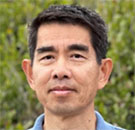
Yingbo Hua |
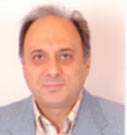
Petros Maragos |
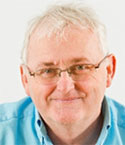
Stephen McLaughlin |
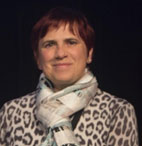
Iole Moccagatta |
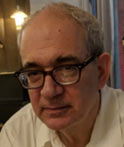
Thrasyvoulos N. Pappas |
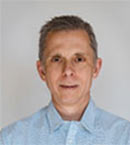
Brendt Wohlberg |
The BoG is the governing body that oversees the activities of the SPS. The SPS BoG has the responsibility of establishing and implementing policy and receiving reports from its standing boards and committees and comprises 23 Society members: the President and President-Elect who are elected by the voting members of the Society, five Vice-President officers of the Society who are elected by the BoG, nine Members-at-Large elected by the voting members of the Society, four Regional Directors-at-Large elected locally by Society voting members of the corresponding region, as well as the Awards Board Chair and Young Professionals Committee Chair. The seven officers are the President, President-Elect, the Vice President-Conferences, Vice President-Education, Vice President-Membership, Vice President-Publications, and Vice President-Technical Directions. The Executive Director of the Society shall serve ex-officio, without vote.
The President-Elect is an IEEE Signal Processing Society member elected by the Society’s membership via the annual election, to serve as an officer and as a voting member on the Society’s Board of Governors, Executive Committee, Conferences Board, Education Board, Membership Board, and Publications Board. The President-Elect position automatically succeeds to President.
Members-at-Large represent the member viewpoint in the Board decision making. They typically review, discuss, and act upon a wide range of items affecting the actions, activities, and health of the Society.
More information on the IEEE SPS can be found on Signal Processing Society website.

